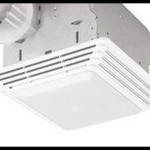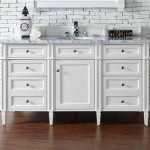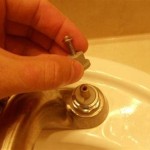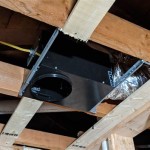Most Popular Bathroom Countertops: A Comprehensive Guide
Selecting the right bathroom countertop is a crucial decision in any renovation or new construction project. It's a surface used daily, subject to moisture, spills, and regular cleaning. Therefore, durability, aesthetics, and maintenance requirements are all paramount considerations. Understanding the most popular options available allows homeowners to make informed choices that balance functionality with desired style.
The market offers a diverse range of materials, each with its unique strengths and weaknesses. Price points vary significantly, as does the level of effort required for upkeep. This article provides a detailed overview of the most sought-after bathroom countertop materials, highlighting their key characteristics and helping to navigate the decision-making process.
Granite: Timeless Elegance and Durability
Granite remains a consistently popular choice for bathroom countertops, prized for its natural beauty and exceptional durability. It is an igneous rock formed deep within the earth, resulting in a unique crystalline structure that offers remarkable resistance to heat, scratches, and stains. Each granite slab is unique, exhibiting variations in color and veining that add visual interest and a sense of luxury to any bathroom.
Granite's strength makes it highly resistant to chipping and cracking, even with heavy use. Its heat resistance is a significant advantage in bathrooms where hot styling tools are frequently used. However, granite is porous and requires sealing upon installation and periodically thereafter to prevent staining and bacterial growth. A high-quality sealant creates a barrier that repels liquids and prevents them from penetrating the stone. Regular cleaning with a pH-neutral cleaner helps maintain its beauty and prevents the sealant from breaking down prematurely.
The cost of granite can vary widely depending on the rarity of the color and the complexity of the fabrication. Installation should be performed by a professional due to the weight and precision required for proper placement and sealing. Despite the initial investment, granite's longevity and enduring appeal often make it a cost-effective choice in the long run.
The aesthetic versatility of granite is another significant advantage. It is available in a wide array of colors, from classic whites and blacks to vibrant blues, greens, and reds. The veining patterns can range from subtle and understated to bold and dramatic, allowing for a customized look that complements any bathroom design. Polished granite offers a glossy, reflective surface, while honed granite provides a matte finish with a more natural, textured feel.
Proper maintenance is essential to maximizing the lifespan and beauty of a granite countertop. Spills should be cleaned up promptly to prevent staining, and abrasive cleaners should be avoided as they can scratch the surface. Regular sealing, typically every one to two years, is crucial for maintaining its stain resistance and preventing water damage. With proper care, a granite countertop can provide decades of reliable performance and timeless elegance.
Quartz: Engineered for Performance and Style
Quartz countertops, often referred to as engineered stone, have rapidly gained popularity as a practical and aesthetically pleasing alternative to natural stone. They are composed of approximately 90-95% ground quartz crystals, combined with resins, polymers, and pigments. This engineered composition results in a durable, non-porous surface that is highly resistant to stains, scratches, and bacteria. Quartz offers a consistent appearance, with a wide range of colors and patterns available, including options that mimic the look of natural stone.
One of the primary advantages of quartz is its low maintenance requirements. Unlike granite, quartz does not require sealing. Its non-porous surface prevents liquids from penetrating, making it highly resistant to staining from spills such as makeup, toiletries, and hair dye. A simple wipe down with a damp cloth and mild soap is typically sufficient for routine cleaning. Quartz is also less prone to chipping and cracking than some other countertop materials, making it a durable choice for busy bathrooms.
The consistency of quartz in terms of color and pattern is a key benefit for those seeking a uniform aesthetic. While natural stone variations can be appealing, some homeowners prefer the predictability and control offered by engineered stone. Quartz is available in a wide range of colors, from solid hues to patterns that mimic the veining of marble or granite. This versatility allows for seamless integration into various bathroom design styles.
While highly durable, quartz is not entirely impervious to damage. Prolonged exposure to high heat can potentially cause discoloration or damage, so it is advisable to use trivets or heat-resistant mats when placing hot styling tools on the surface. Similarly, while quartz is stain-resistant, it is still best to clean up spills promptly to prevent any potential discoloration from highly pigmented substances.
Installation of quartz countertops is typically performed by professionals due to the material's weight and the need for precise cutting and fitting. The cost of quartz can vary depending on the color, pattern, and manufacturer. While often more expensive than laminate or tile, it generally falls within a similar price range as granite, offering a balance of performance, aesthetics, and value.
Laminate: Budget-Friendly and Versatile
Laminate countertops, constructed from layers of plastic laminate fused to a particleboard or MDF core, offer a cost-effective and versatile option for bathroom renovations. Advancements in manufacturing have significantly improved the appearance and durability of laminate, making it a viable choice for budget-conscious homeowners. Laminate is available in a vast array of colors, patterns, and textures, including options that mimic the look of natural stone, wood, and other materials.
One of the primary advantages of laminate is its affordability. It is typically the least expensive countertop material, making it an attractive option for those on a tight budget. Laminate is also relatively easy to install, making it a DIY-friendly project for experienced homeowners. However, professional installation is recommended for achieving the best results and ensuring a seamless finish.
The versatility of laminate extends beyond its price point. It is available in a wide range of colors and patterns, allowing for a customized look that complements any bathroom décor. High-definition printing technology allows for realistic reproductions of natural stone, wood grain, and other textures. Laminate countertops can also be fabricated with various edge profiles, adding to their aesthetic appeal.
While laminate is generally water-resistant, it is not entirely waterproof. Prolonged exposure to moisture can cause the particleboard or MDF core to swell and delaminate. It is crucial to wipe up spills promptly and to avoid leaving standing water on the surface. Seams around the sink and faucet should be carefully sealed to prevent water from seeping underneath the laminate.
Laminate is also susceptible to scratches and heat damage. Avoid using abrasive cleaners or scouring pads, as they can scratch the surface. Use trivets or heat-resistant mats when placing hot styling tools on the countertop. While minor scratches can sometimes be repaired with specialized laminate repair kits, significant damage may require replacement of the entire countertop.
Despite its limitations, laminate remains a popular choice for bathrooms due to its affordability, versatility, and ease of installation. With proper care and maintenance, a laminate countertop can provide years of reliable service. Its extensive range of colors and patterns makes it easy to find an option that complements any bathroom design, making it a practical choice for those seeking a budget-friendly and stylish solution.
Solid Surface: Seamless and Repairable
Solid surface countertops are manufactured from a blend of acrylic or polyester resins and mineral fillers. This combination creates a non-porous, seamless surface that is highly resistant to stains, moisture, and bacteria. Solid surface countertops are known for their smooth, consistent appearance and their ability to be molded into various shapes and sizes. They offer a wide range of colors and patterns, including options that mimic the look of natural stone.
One of the key advantages of solid surface is its seamless construction. Seams are virtually invisible, creating a smooth, continuous surface that is easy to clean and maintain. The non-porous nature of solid surface prevents liquids from penetrating, making it highly resistant to stains and bacterial growth. This makes it a hygienic choice for bathrooms where cleanliness is a priority.
Solid surface countertops are also relatively easy to repair. Minor scratches, chips, and stains can often be buffed out with specialized cleaning products or by a professional refinisher. This repairability extends the lifespan of the countertop and helps maintain its aesthetic appeal over time. Deeper scratches or gouges can often be filled with matching resin and sanded smooth, making solid surface a durable and long-lasting option.
The versatility of solid surface allows for creative design options. It can be molded into various shapes and sizes, including integrated sinks and backsplashes. This seamless integration eliminates the need for caulking, further enhancing the hygienic properties of the countertop. Solid surface is also available in a wide range of colors and patterns, from solid hues to options that mimic the veining of marble or granite.
While solid surface is heat-resistant, it is not entirely heatproof. Prolonged exposure to high heat can cause discoloration or damage, so it is advisable to use trivets or heat-resistant mats when placing hot styling tools on the surface. Similarly, while solid surface is stain-resistant, it is still best to clean up spills promptly to prevent any potential discoloration from highly pigmented substances.
Installation of solid surface countertops is typically performed by professionals due to the material's weight and the need for precise cutting and fitting. The cost of solid surface can vary depending on the color, pattern, and manufacturer. It generally falls within a similar price range as granite and quartz, offering a balance of performance, aesthetics, and repairability.
Tile: Versatile Design and Affordability
Tile countertops offer a versatile and often affordable option for bathroom renovations. They consist of individual tiles adhered to a substrate, typically cement board or plywood. Tile is available in a vast array of materials, colors, sizes, and patterns, allowing for highly customized designs. Common tile materials include ceramic, porcelain, glass, and natural stone.
One of the primary advantages of tile is its design flexibility. The wide range of available options allows for the creation of unique and personalized countertops. Mosaics, intricate patterns, and contrasting colors can be used to create a focal point in the bathroom. Tile is also a durable and water-resistant material, making it well-suited for wet environments.
The cost of tile countertops can vary widely depending on the material chosen. Ceramic and porcelain tiles are generally the most affordable options, while natural stone tiles, such as granite or marble, can be significantly more expensive. Installation costs can also vary depending on the complexity of the design and the size of the countertop.
One of the main drawbacks of tile countertops is the grout lines. Grout is porous and can be susceptible to staining and mildew growth. Regular cleaning and sealing are essential to maintain the appearance and hygiene of tile countertops. Epoxy grout is a more durable and stain-resistant option, but it is also more expensive and more difficult to install.
Tile countertops can be prone to chipping and cracking if not properly installed or if subjected to heavy impact. It is important to choose a durable tile material and to ensure that the substrate is properly prepared. Professional installation is recommended for achieving the best results and ensuring a long-lasting countertop.
Despite the challenges associated with grout maintenance, tile countertops remain a popular choice for bathrooms due to their design versatility and affordability. With proper care and maintenance, a tile countertop can provide years of reliable service and add a unique touch to any bathroom design. The wide range of available options makes it easy to find a tile that complements any bathroom style, from traditional to contemporary.
:strip_icc()/102227038-7f5a5ef7c99948bd817d94db91e36084.jpg?strip=all)
18 Luxurious Bathroom Countertop Ideas For All Budgets

12 Best Quartz Bathroom Countertops In 2024 Marble Com

Choosing Bathroom Countertops
:strip_icc()/102130266-3174ac7d31314c7abfc80a1b65a11dd6.jpg?strip=all)
18 Luxurious Bathroom Countertop Ideas For All Budgets

6 Best Bathroom Countertops Chic Countertop Materials

Best Types Of Bathroom Countertops Modernize
Bathroom Vanity Top Guide Signature Hardware

12 Best Quartz Bathroom Countertops In 2024 Marble Com

Best Types Of Bathroom Countertops Modernize

6 Best Bathroom Countertops Chic Countertop Materials
Related Posts







